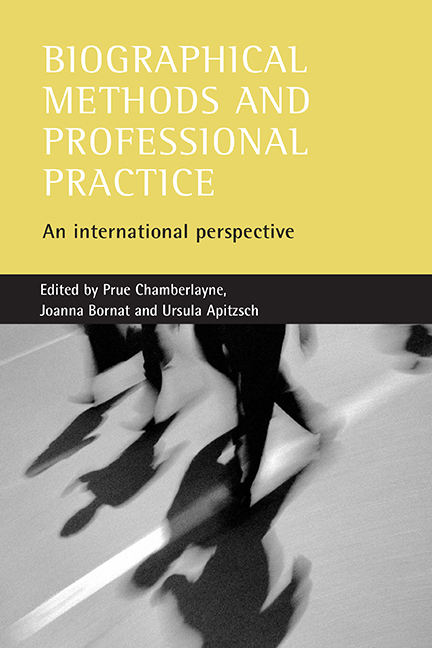Book contents
- Frontmatter
- Contents
- Notes on contributors
- one Introduction
- Part One Putting the subject into policy and practice
- Part Two Subjectivity in context
- Part Three Self-awareness in research and practice
- Part Four Recognising trajectories of disempowerment
- Part Five Biographical resources in education and training
- Index
eleven - The biographical turn in health studies
Published online by Cambridge University Press: 20 January 2022
- Frontmatter
- Contents
- Notes on contributors
- one Introduction
- Part One Putting the subject into policy and practice
- Part Two Subjectivity in context
- Part Three Self-awareness in research and practice
- Part Four Recognising trajectories of disempowerment
- Part Five Biographical resources in education and training
- Index
Summary
This chapter offers an overview of existing biographical methods in health studies. The focus comes from my own efforts over the past few years to draw together a picture of some potentialities, possibilities and challenges of using biographical methods in health studies, both in research with marginalised groups and individuals, and in university teaching. I came to the topic initially from British oral history work in the two different – but both highly politicised – areas of HIV and AIDS (for example, Rickard, 1998, 2000) and prostitution (for example, Rickard, 2001; Rickard and Growney, 2001), work that I undertook in the context of being a health promotion practitioner. Hence, in terms of a broad range of biographical methods, the focus here dwells for the most part on oral history, life history and narrative approaches.
The rise of biographical methods in health
In the past two decades, there has been a perceived rise in the use of biographical methods in health studies, and a number of reasons have been cited to explain why this has occurred. First, modern biomedicine has been criticised for neglecting the patient or the lived experience side of health-focused encounters (Cornwell, 1994; Hogarth and Marks, 1998), and since the mid-1980s, biographical methods have gained precedence as a way to humanise medicine and redress this imbalance. They have been used in order to look at the stories of patients or the recipients of health interventions and their interaction with the increasing array of health professionals (for example, Brody, 1988; Kleinman, 1988; Hunter, 1991; Epstein, 1995; Greenhalgh and Hurwitz, 1998). Hogarth and Marks (1998) suggest that this biographical turn in health studies is firmly linked to changing power relations between health professionals and recipients of healthcare. They note that:
a renewed emphasis on narrative in the late twentieth century can be linked to the declining power of professionals and the re-conceptualisation of patients as complex individuals powerfully conditioned by familial and early childhood experiences on the one hand, and as consumers with demands and rights on the other. (Hogarth and Marks, 1998, p 147)
Second, and perhaps slightly in contrast to this point, biographical methods have also been used to record the history of professions and of witnesses to their medical achievements, potentially reinforcing notions of professional power.
- Type
- Chapter
- Information
- Biographical Methods and Professional PracticeAn International Perspective, pp. 165 - 180Publisher: Bristol University PressPrint publication year: 2004
- 1
- Cited by



